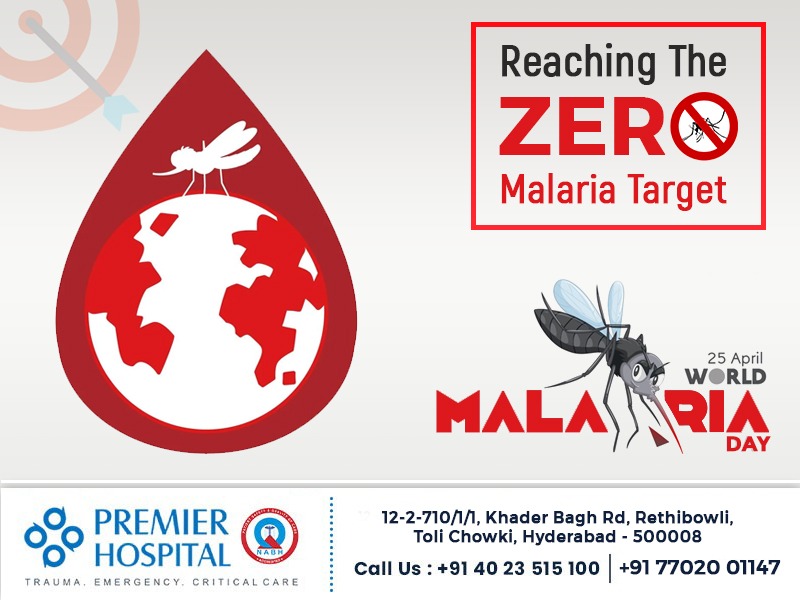World Malaria Day 2021
by Premier Hospitals | April 24, 2021 |
World Malaria Day is commemorated every year on 25th April, this annual event is organised worldwide, to raise malaria awareness and generate funds to treat patients and prevent malaria. The day highlights the need for various organizations and political intervention to control malaria. The day also marks the achievements gained against Malaria. This malaria day is organised by WHO and its partners to honour the achievements of countries around the world that are supporting and achieving – elimination of malaria. They inspire other nations working to eliminate this deadly disease permanently and to promote the health of their populations. This year the World Health organisation on malaria day came up with the theme, “Reaching the zero malaria target.†As part of social responsibility we, Premier Hospital, wants you to understand some facts about Malaria. Malaria is one of the most life-threatening diseases caused due to a mosquito bite. It is transmitted when an infected Anopheles mosquito bites you. The infected mosquitoes release a dangerous parasite called Plasmodium into your bloodstream. Once the parasite enters your body, they settle in the liver and mature there. After a few days, the matured parasites again enter your bloodstream and infect the red blood cells. Within 72 hours, the parasites multiply causing the infected red blood cells to burst open. This results in various symptoms that occur in stages and lasts around three days at a time. Some of these include shaking chills, high fever, sweating, headache, nausea, vomiting, abdominal pain, diarrhoea etc.-  Typically, malaria is observed in specific climatic conditions of tropical and subtropical which is the ideal climate for the parasites to live.
- Even if you live in a clean environment, certain corners in your home or damp areas around your home allow the mosquitoes to breed. They can hide anywhere in flowerpots, toilet bowls, water tanks, sinks, and inside curtains. So you need to be careful.
- The disease doesn’t carry the same amount of risk for everyone, Newborns and children under the age of five years are at more risk of malaria or dengue. This is because the immune system in children is not strong enough to fight against these diseases.
- Malaria and dengue are different diseases but they share similarities in symptoms such as headaches, high fever, fatigue and muscle pains etc. Both diseases are caused due to mosquito bites, but treatment approaches are different and should be treated immediately.
- Not everyone with malaria can have fatal conditions, It becomes life-threatening if not treated in time.
- The Anopheles mosquito that causes malaria disease mostly bite during night time. But Aedes mosquito responsible for causing diseases like dengue, and Chikungunya mostly bite during day time.Â
- Some people think that being infected with malaria once doesn’t mean the person will not get malaria again. A person can be affected by malaria many times, So you should take proper care against these dangerous diseases.



















